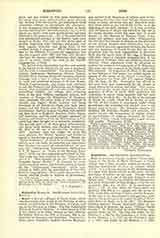

Acre (Saint-JEAN-D’ACRE), in Hebr. “Accho, Sept. Akcho, in the Books of Mach. Ptolemais, in Greek writers “Ake (‚Äò`Arke), in Latin writers Ace or Acce, in Assyrian inscriptions Ak-ku-u, in modern Arabic ‘Akka. It is a Syrian seaport on the Mediterranean, in a plain with Mount Carmel on the south, and the mountains of Galilee on the east. Though choked up with sand, it is one of the best harbors on the Syrian coast. The city was built by the Chanaanites, and given to the tribe of Aser (Judges, i, 31), but not conquered (Jos., xix, 24-31). It is mentioned in Mich., i, 10. It was taken by Sennacherib the Assyrian (704-680 B.C.), passed into the power of Tyre, of the Seleucid kings of Syria, and the Romans. At the time of the Macchabees it belonged for a short time to the sanctuary in Jerusalem by gift of Demetrius Soter (I Mach., x, 1-12, xiii). The Emperor Claudius granted Roman municipal rights to the town; hence it received the name “Colonia Claudii Caesaris.” St. Paul visited its early Christian community (Acts, xxi, 7). The city was taken by the Moslems A.D. 638, by the Crusaders A.D. 1104, again by the Moslems A.D. 1187, by the Crusaders again A.D. 1191, and finally by the Moslems A.D. 1291. Though Napoleon could not conquer it in 1799, it was taken by the Viceroy of Egypt in 1832, but reconquered by the Sultan in 1840. Till about 1400 it was the see of a Latin bishop; it has also been the residence of a few Jacobite bishops, and has now a Melchite bishop who is subject to the Patriarch of Antioch.
A. J. MAAS

